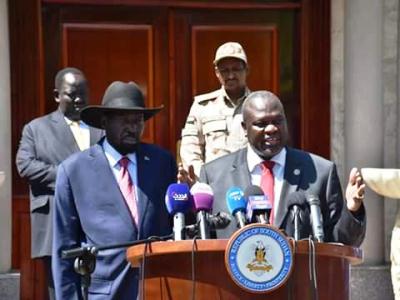U.S pushes for war crimes tribunal in South Sudan
August 10, 2016 ((JUBA)- The United States has urged South Sudan leaders to respect their commitment to establish a hybrid court meant to arbitrate charges of war crimes in the country.

In the article, both leaders argued that South Sudan needs a South Africa-like truth and reconciliation commission that will unify the nation and “guarantee lasting peace.”
Mark Toner, the US State Department said Washington was “disappointed” by the joint article published on 7 June.
“We firmly support the African Union’s efforts to establish this hybrid court,” Toner said in a statement, further adding “And we expect the parties to fulfill their responsibilities.”
Creation of a hybrid court, he said, was key elements in South Sudan’s peace accord signed by Kiir and Machar.
South Sudan’s largest donor, the US played a leading role in the process that led to the country’s independence in 2011.
Analysts, however, say the defence of the proposed court by President Barack Obama administration may make it difficult for South Sudan’s factions to avoid accountability for atrocities that both sides are said to have committed.
Both Kiir and Machar advocated for an “organized” peace and reconciliation process with international backing.
Such a process, they said, would ensure everyone in South Sudan is engage through dialogue, and by so doing affirm the truth of what happened during our bloody civil war.
“We intend to create a national truth and reconciliation commission modeled on those of South Africa and Northern Ireland. This commission would have wide-ranging powers to investigate and interview the people of South Sudan, from the poorest farmer to the most powerful politician, to compile a true account of events during the war,” they wrote.
The two leaders, in the op-ed, said those who tell the truth about what they saw or did would be granted amnesty from prosecution, even if they did not express remorse.
Washington said it does not oppose such a commission, which “could be an important part of this peace agreement,” adding “There needs to be accountability.”
Meanwhile, the New-York based Human Rights Watch criticized South Sudanese leaders for allegedly bypassing justice in the young nation in favor of a truth-telling exercise.
(ST)
